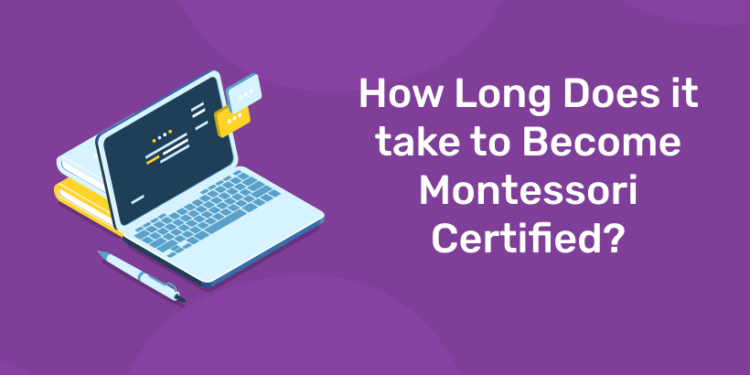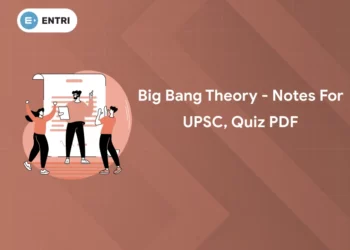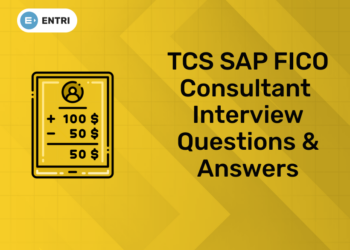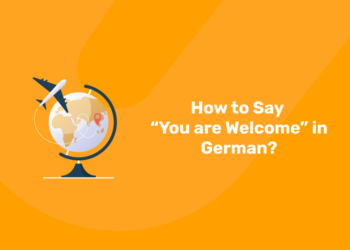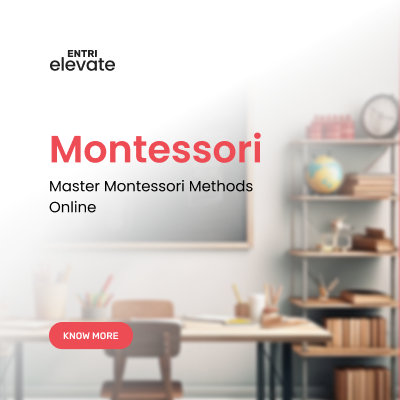Table of Contents
Dr. Maria Montessori made the Montessori way of teaching. It’s about kids learning by themselves with rules and doing activities. To be certified in Montessori teaching, you finish training that matches these ideas. The time it takes to get certified is different for everyone. It depends on which training you pick, your schedule, and how fast you learn. In this article we will discuss – How long does it take to become Montessori certified?
How long does it take to become Montessori certified?
What Is Montessori Education?
This educational method was made by Dr. Maria Montessori, an Italian doctor and teacher. It’s a way of teaching that maily focuses on kids and how each child learns in different ways. In Montessori classrooms, there are special materials and rules to help each child to learn and grow on their own. This method is all about letting kids learn by themselves with guidance and become independent, creative.
Key principles of the Montessori method include:
Child-Centered Learning:
At Montessori schools, children can learn however they like, whenever they want. The classrooms have fun things for kids to discover and learn with. Special
Classrooms:
Rooms in Montessori schools are made with care. They have things that help kids learn and match their age.
Freedom with Rules:
Kids can pick what they want to do and learn alone, but there are still rules to follow. Teachers help but also let kids learn on their own.
Learning by Doing:
Montessori is all about kids learning by touching and doing things. The toys and tools they use help them fix mistakes and learn how things work.
Mixed Ages:
Kids of different ages learn together. Younger kids learn from older ones, and older kids get better at what they know by teaching younger ones.
Valuing Each Child:
Montessori cares about every part of a kid, not just school stuff. They want kids to be good at thinking, solving problems, and loving to learn.
Unlock your passion for education and shape young minds as a Montessori teacher!
How Is It Different From Conventional Education?
Montessori education is different from regular school in these ways:
Who’s in Charge:
Montessori: Kids lead their learning. Teachers guide them based on what each child needs.
Regular School: Teachers tell kids what to learn and how.
Classroom Setup:
Montessori: Classrooms have fun stuff for kids to explore and learn with. Kids choose what they want to do.
Regular School: Desks in rows, learning from books, and teachers leading lessons.
How Kids Learn:
Montessori: Kids learn by choosing their activities and working alone. Learning goes at their pace.
Regular School: Following a set plan, everyone learns the same thing at the same time.
Learning Tools:
Montessori: Special materials help kids learn subjects like math, language, and science in a hands-on way.
Regular School: More focused on books and worksheets.
Tests and Grades:
Montessori: Teachers watch kids and see how they’re doing without using lots of tests.
Regular School: Tests and grades show how well kids are learning.
Kids of Different Ages:
Montessori: Kids of different ages learn together, helping each other.
Regular School: Kids are split into grades by their age.
Discipline Style:
Montessori: Helping kids learn to control themselves and make good choices.
Regular School: More about rules and punishments set by teachers.
Who can Teach?
Montessori Training:
To be a Montessori teacher, you need special training from places like the Association Montessori Internationale (AMI) or the American Montessori Society (AMS). This training teaches about Montessori ideas and how to use things for different aged kids, like babies, young kids, or bigger kids. You usually need a certificate after this training to work as a Montessori teacher.
Liking Kids:
Montessori teachers should really like working with kids. They should believe that kids can learn by themselves and should respect how each kid learns in their way. Montessori teachers want kids to be curious and love learning new things.
Changing and Waiting:
Teachers need to be okay with kids learning in different ways. They need to be patient and ready to help each kid learn at their own speed.
Talking Well:
Teachers should be good at talking with kids, parents, and other teachers to help kids learn better.
Knowing Montessori Stuff:
Understanding how Montessori teaches, what they use, and how to make a good learning place is super important.
Keep Learning:
Teachers always learn more to be better teachers. They go to talks, classes, and other learning stuff to be good at teaching.
Being Kind and Understanding:
Making a place where kids feel happy and safe to learn is very important for Montessori teachers. They care about kids’ feelings and not just about what they learn.
Even though you don’t need a special degree, people who know about little kids or people who study minds often like Montessori. But the best way to be a Montessori teacher is to finish a special Montessori training program.
Unlock your passion for education and shape young minds as a Montessori teacher!
How long does it take to become Montessori certified?
The duration to obtain Montessori certification can vary based on several factors:
Certification Type:
For Infant and Toddler certification: It might take around 9 months to 2 years.
Early Childhood (ages 2.5 – 6): Similar to Infant and Toddler, around 9 months to 2 years.
Elementary (ages 6 – 12): This might need 2 to 4 years due to the more complex curriculum.
Adolescent (ages 12 – 18): Usually also 2 to 4 years because it’s for teaching older students.
Training Program:
Full-time courses: They could take several months, like 9 to 24 months.
Part-time or online courses: These might take longer, maybe more than 2 years.
Institution and Accreditation:
Accredited programs: They usually follow specific rules and might take the same time as mentioned above.
Prior Education and Experience:
If you’ve already studied education or child development, it might make the process faster.
Practical Training:
Hands-on training in a Montessori class could add time, perhaps a few extra months.
In general, Montessori certification might take a few months up to a couple of years. But remember, it depends on which level you’re aiming for, the type of course, and where you study. Always choose a good program that fits your schedule and goals.
How to get Montessori certification?
Find a Good Montessori Program:
Look for a school or course that teaches Montessori methods. They need to be approved by groups like AMI or AMS.
Decide Who You Want to Teach:
Choose if you want to teach younger or older kids. There are different courses for different age groups.
Join the Training:
Sign up for the Montessori training. You can choose how you want to study, like online or in a classroom.
Learn Lots of Things:
During the course, you’ll study Montessori ideas, watch how classes work, and practice teaching using special tools.
Practice Teaching:
Spend time in a real Montessori classroom, trying out teaching while experienced teachers help you.
Do Tests or Projects:
Show what you’ve learned by doing some tests or projects for the course.
Get a Certificate:
When you finish everything, you’ll get a certificate that says you’re ready to teach using Montessori ways.
Keep Learning More:
Sometimes, to keep your teaching certificate, you’ll need to keep learning new things about Montessori teaching through workshops or more classes.
Online Certification Programs
Best Montessori Course Online
Entri provides a top-notch Montessori course online, letting students study comfortably from home. This online program meets high-quality standards and is taught by certified Montessori teachers with plenty of experience. It covers lessons for preschool, elementary, and middle school levels, offering a detailed curriculum with practical and theory modules alongside video lectures. The course makes learning fun and interactive, ensuring students get the best education. Entri also has an assessment system to make sure students are learning well and acquiring the necessary skills.
About the Course
Here’s what the course covers:
Learning the Basics:
This part talks about the important theories in teaching and learning, like how kids develop, what motivates them, and how they think and feel.
Teaching Young Kids:
It focuses on teaching little kids and how to create good lessons and activities for them to grow well.
Managing a School:
This section helps learn how to manage and organize a preschool or early education center. It includes planning what kids will learn, how to handle classes, involve parents, and make a good learning place.
Montessori Way of Teaching:
Here, they explain the special way Montessori schools teach kids. It’s about hands-on learning, having the right things in class, having different ages together, and making kids independent.
Practice Teaching:
Trainees get to practice teaching in a real classroom. They watch experienced teachers, help teach, and slowly start teaching themselves under supervision. It helps them use what they learn practically.
Showing What You Know:
Lastly, there’s a test to check how well trainees can teach using Montessori methods. They also talk about Montessori ideas and teaching skills in an interview to show they’re ready to be Montessori teachers.
The course is made to help people learn how to teach using the Montessori way and gets them ready to become good Montessori teachers.
Advantages of Entri’s Montessori Program
- Entri’s Online Montessori training offers flexibility, enabling convenient access to coursework at any time.
- Geographical barriers are overcome, allowing diverse individuals to access quality Montessori education.
- Tailored learning accommodates varied schedules, suiting working professionals and individuals with commitments.
- Cost-effectiveness is a benefit, reducing expenses associated with commuting or accommodation fees.
- Interactive tools enhance learning experiences, fostering active participation and collaborative study.
- Participants receive guidance from experienced educators and experts throughout the training.
- Networking opportunities with peers from diverse backgrounds enrich the learning journey.
- Accredited programs ensure adherence to established Montessori standards and guidelines.
- Adaptability to individual needs allows revisiting materials and content at one’s own pace.
- Updated curriculum reflects the latest research and best practices in Montessori education.
Why take Montessori certification?
Obtaining Montessori certification offers several advantages for individuals interested in pursuing a career in education, particularly within the context of Montessori schools or environments. Here are some reasons why individuals might consider pursuing Montessori certification:
Deep Understanding of Montessori Philosophy:
Teachers learn deeply about Montessori’s ideas and methods. This helps them use these principles in their classrooms.
Specialized Training:
Teachers get special training in using Montessori tools and setting up classrooms in a way that helps kids learn best.
Better Teaching Skills:
These programs help teachers learn how to teach in a way that makes kids think for themselves and learn at their own pace.
More Job Opportunities:
Schools often prefer teachers who have Montessori training. So, having this certification can help teachers find more job options.
Different Career Paths:
It opens doors to jobs in Montessori schools, preschools, or other places that use these methods. It might even help teachers become leaders or start their own Montessori programs.
Learning and Support:
Teachers can keep learning from other experienced educators and get support from a community of Montessori-trained people.
Helps Kids Learn Better:
Teachers with Montessori training can create fun classrooms where kids love learning and doing things on their own.
Matches Personal Beliefs:
If a teacher likes the idea of focusing on what each child needs and believes in holistic learning, this training matches their beliefs.
Recognition and Respect: Getting certified shows that a teacher is serious about using good teaching methods. It’s like having proof of being a really good teacher.
Conclusion
Acquiring Montessori certification involves completing specialized training programs aligned with the Montessori philosophy and methodology. The duration to obtain certification varies based on the chosen level of training, ranging from a few months for some programs to a couple of years for more comprehensive training, ensuring educators are equipped with the knowledge and skills to effectively implement the Montessori approach in educational settings. The Ultimate Guide 2024 serves as a valuable resource, offering detailed insights into the diverse Montessori certification programs available, their specific durations, prerequisites, and the pathways for individuals aspiring to become certified Montessori educators.
Unlock your passion for education and shape young minds as a Montessori teacher!
| Montessori Teacher Training in Different Cities |
| Montessori Teacher Training Course in Trivandrum |
| Montessori Teacher Training Course in Kollam |
| Montessori Teacher Training Course in Kochi, Ernakulam |
| Montessori Teacher Training Course in Calicut |
Frequently Asked Questions
How long does it take to finish Montessori training?
It changes based on which training you pick. Some might take a few months, while others could last a couple of years.
Are there different levels of Montessori training, and do they take different times?
Yes, there are different levels, like Infant and Toddler or Early Childhood. The time to finish each one is different.
What decides how long Montessori training lasts?
Things like the level of training, how the program works (like full-time or part-time), what you’ve learned before, and what the program asks for can affect how long it takes.
Can what I already know about teaching or learning affect how long it takes to get Montessori certified?
If you already know things about teaching or kids, you might skip some parts, which could make training shorter.
Are there quick Montessori training programs?
Some programs are faster. They teach you everything in a shorter time.
How do I pick a Montessori training that fits my schedule?
Look at different programs, see how they work, and decide if the time they take fits your schedule.
Why is the Ultimate Guide 2024 important for learning about Montessori training times?
This guide tells you a lot about different Montessori training programs, including how long they take, what you need to start, and what they teach.
Can I do Montessori training while I'm working or in college?
Some programs let you study while you’re busy with work or college by offering flexible schedules or classes online.
What do I need to join Montessori training?
Usually, you need a high school diploma or something like it. Some programs might need more.
How can I make sure I pick a good Montessori training program that fits how much time I have?
Check if the program is approved, look at the details, talk to people from the program, and think about what you want to do after the training to pick the right one for you.



